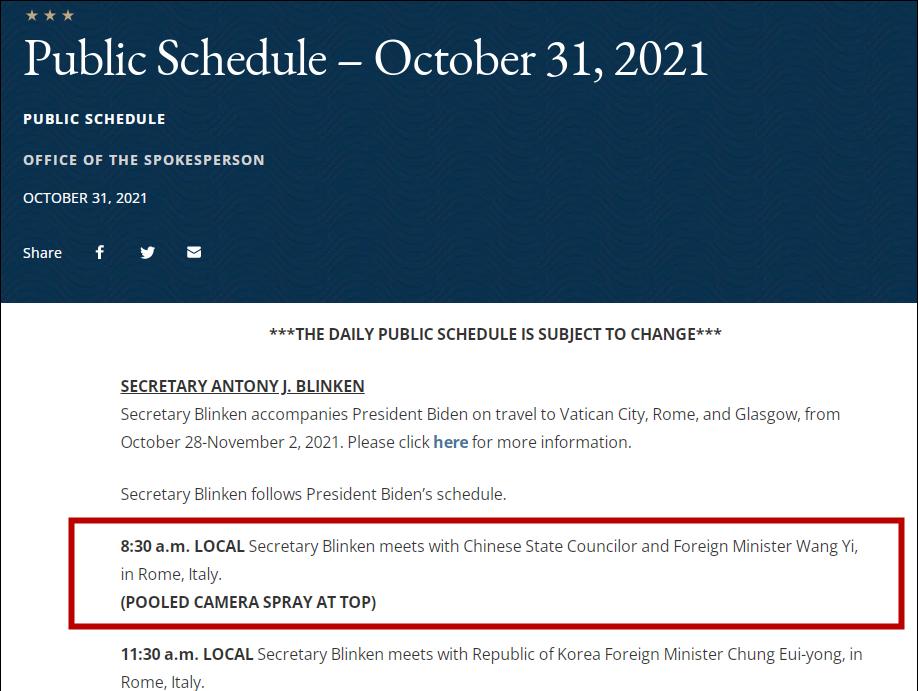According to the website of the US State Department, US Secretary of State Blinken will meet with Chinese State Councilor and Foreign Minister Wang Yi in Rome, Italy, on October 31, local time.
From October 30 to 31, the 16th G20 Summit was held online and offline, with Wang Yi attending rome as President Xi Jinping's special representative, and Blinken accompanying US President Biden to Rome.

Screenshot of the U.S. Department of State website
Agence France-Presse said this would be Wang Yi's second face-to-face meeting with Blinken and the first time the two had met since the U.S.-China talks in Alaska in March.
Japan's Kyodo News Agency noted that the meeting between the two men coincided with the Biden administration's attempt to "control the increasingly fierce competition between China and the United States," and that the United States was tense with China over the Taiwan issue, China's adjacent waters, and the so-called "human rights" issue.
The United States has recently hyped up the Taiwan issue, biden declared in a TELEVISION program broadcast by CNN on the 21st that the United States will "defend Taiwan"; on the 27th, Biden threatened at the online meeting of the East Asia Summit that the United States was deeply concerned about China's "coercive actions" in the Taiwan Strait, and declared that "this is a threat to peace and stability" and "the US commitment to Taiwan is as strong as a rock".
On October 29, local time, Wang Yi pointed out during his participation in the G20 summit in Rome that the recent attempts by the United States and other individual countries to make breakthroughs on the Taiwan issue run counter to the political commitments they made when they established diplomatic relations with China, disregard the common will expressed by the vast number of member states in Resolution 2758, and are harmful to the purposes and principles of the UN Charter and the destruction of peace and stability in the Taiwan Strait.
Wang Yi said that they could not stop the one-China principle 50 years ago, and it is even more unlikely that they will succeed in the 21st century. If you insist on going your own way, you will pay the price you deserve.
This article is an exclusive manuscript of the Observer Network and may not be reproduced without authorization.